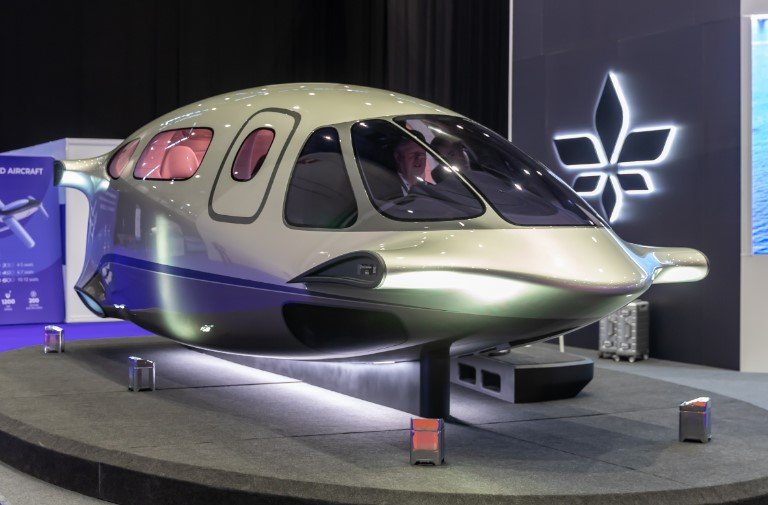Georgia Tech opened its new Aircraft Prototyping Laboratory in Atlanta on September 23, 2025, with a ribbon-cutting set for September 25. This state-of-the-art facility drives research in electric and autonomous flight, partnering with NASA, industry leaders like Joby Aviation, and government groups to pioneer sustainable aviation tech.
The lab targets key challenges in hybrid-electric propulsion and self-flying systems, boosting Georgia’s aerospace industry, which leads the state’s exports. It promises to train top engineers and spark economic growth through innovation.
Facility Features and Design
The 10,000-square-foot space in the North Avenue Research Area includes specialized areas for practical work. Teams can build and test prototypes with wingspans up to 20 feet in a high-bay integration zone.
An electric powertrain lab focuses on battery and motor systems. A propulsion test cell simulates real flight conditions to check engine performance.

The avionics lab handles electronics for navigation and control. A composites area allows crafting lightweight materials for better efficiency.
This setup speeds up development from idea to prototype. It fits into Georgia Tech’s broader push for advanced manufacturing, seen in recent partnerships with firms like Altair for aerospace simulations.
Recent news highlights similar labs, like UGA’s CREATE Labs for prototyping, showing a trend in university-led innovation.
Key Projects in Progress
RAVEN stands out as a major initiative. This NASA-backed eVTOL aircraft, weighing around 1,000 pounds, tests electric propulsion, noise reduction, and autonomy.
Work on RAVEN includes system integration right in the lab. It aims to set standards for advanced air mobility, like urban air taxis.
Another project is a solar-electric demonstrator. This explores renewable power for aircraft, potentially cutting fuel use on long flights.
SETTER, a smaller eVTOL testbed, develops software for safe operations. It focuses on critical apps to prevent failures in autonomous flights.
These efforts build on past successes, such as Georgia Tech’s motion capture projects for drone swarms back in 2022.
| Project | Description | Goals | Partners |
|---|---|---|---|
| RAVEN | Electric VTOL research plane | Test propulsion and autonomy | NASA |
| Solar-Electric Demonstrator | Renewable energy aircraft | Reduce emissions | Internal teams |
| SETTER | Subscale testbed for software | Enhance safety features | Industry collaborators |
Industry and Government Ties
Partnerships fuel the lab’s work. Joby Aviation, known for urban eVTOLs, collaborates on bypassing city traffic with quiet, efficient flights.
GE Aerospace brings hybrid engine expertise, with recent tests showing electric boosts for turbofans. This could lead to greener commercial flights.
AFWERX and the Air Force Research Laboratory demo autonomous capabilities, like with Joby on Cessna mods. These tie into national defense and civilian uses.
The U.S. Department of Transportation’s eVTOL program integrates new tech into airspaces. Local Atlanta facilities support testing, linking to 5G drone networks.
- NASA: Long-term funding for eVTOL research.
- Joby Aviation: Autonomous flight demos for military exercises.
- GE Aerospace: Hybrid propulsion milestones in 2025.
- BETA Technologies: Electric aviation collaborations.
Economic and Environmental Benefits
Georgia’s aerospace sector employs thousands, with exports topping $10 billion last year. The lab will create jobs and attract talent to the state.
Electric flight could slash aviation emissions, aligning with 2050 net-zero goals. Studies show hybrid systems might improve fuel efficiency by 30 percent.
Challenges include battery tech and regulations, but progress in wing-in-ground-effect vehicles offers hope for offsetting energy limits.
This fits trending topics, like NASA’s electrified powertrain demos and global pushes for sustainable transport.
Future Outlook for Aviation
The lab positions Georgia Tech as a hub for next-gen flight. Expect flight tests soon, possibly leading to commercial eVTOLs by 2030.
It could inspire startups and more funding, changing daily travel with air taxis. As research advances, watch for updates on noise and safety breakthroughs.
What do you think about the rise of electric aircraft? Share in the comments and spread the word to others interested in tech innovations.
